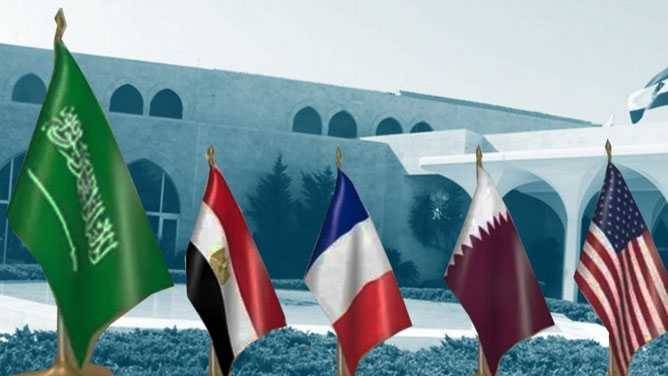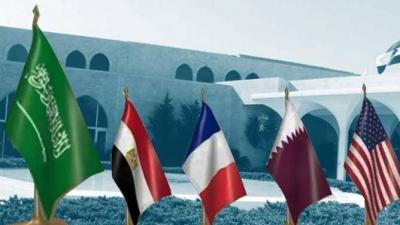The upcoming week is attracting significant attention due to pressing issues regarding the situation in the South and efforts to find solutions for the implementation of Resolution 1701 or the proposed solution brought by American envoy Amos Hochstein to Beirut and Tel Aviv. Notably, "Hezbollah" has been clear, stating that they will fight alone, irrespective of Iran, which carries many implications and interpretations as some are working to delve into this striking position amidst current conditions, as reported by "An-Nahar."
On the other hand, this week will be crucial for the quintet, which will "delve" into all presidential and party headquarters, in addition to various political and spiritual authorities. It is worth noting that the meeting of heads of parliamentary blocs and political leaders will be decisive at this stage, considering the atmosphere and information indicating that the decision has been made by the quintet countries to end the presidential vacancy.
In this context, one of the ambassadors from these countries remarked, "The discussions with all those we meet will be unified, meaning that a president must be elected because the situation in Lebanon and the region is serious enough to threaten the Lebanese entity. If there is no president in such circumstances, it will bring calamities upon this country, particularly given its economic and social struggles." Naturally, the approach of the quintet committee is clear regarding the "third option" without delving into names, placing everyone before their responsibilities and warning them of the consequences of what is coming to Lebanon and the region in connection with the Gaza war, the South, Syria, and Yemen.
Moreover, it is confirmed that "there is no specific deadline set by the committee for electing a president, but there is pressure from all countries involved in the committee to expedite this process. The ceasefire in Gaza, if things proceed smoothly, could serve as an entry point for electing a president." There is also an acknowledgment that "efforts aimed at this goal may increase at the level of the leaders of these countries, including a conference for foreign ministers, similar to the movements and endeavors that took place prior to the Taif Agreement by the Kingdom of Saudi Arabia through the Arab committee led by the late Saudi Foreign Minister Prince Saud Al-Faisal."
In parallel, political sources monitoring these paths indicate that despite the progress achieved by the quintet and the positive steps reported from various sources recently, it does not mean that the election of a president is assured or that there is a deadline to end the presidential vacancy. There are complications and difficulties on various fronts, but ultimately, there will be an international-regional settlement, particularly through the Washington-Riyadh-Tehran triangle, based on the premise that developments in the relationship between Saudi Arabia and Iran would positively help fill the presidential vacancy.
In such cases, it should not be forgotten that there are political maneuvers necessary for these elections to secure gains and guarantees, which require more efforts. Ultimately, and this is a pivotal point, the stance of this or that leader in Lebanon, or this political authority and that one, will not impact the timing of the international and regional conditions when the opportunity arises and the settlement matures, which often happens in the dying minutes. Historically, presidents have been elected at the last moment according to "An-Nahar."
The sources emphasize that entering the name game will not occur this week, as the quintet tours most domestic components, but meetings will focus on urging everyone to elect a president and move away from obstructive policies while discussing the mechanisms established by the quintet committee. The current situation, from Gaza to the South and the daily Israeli threats, even if mostly exaggerated, remains a factor that keeps the danger alive in the event of dramatic developments. Therefore, "what is said in jest may become true," as the country navigates through dangerous pitfalls, making the presidential election contingent upon these circumstances and conditions both domestically and regionally.




